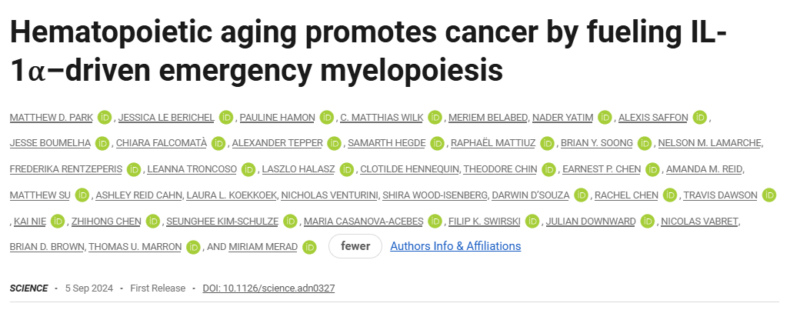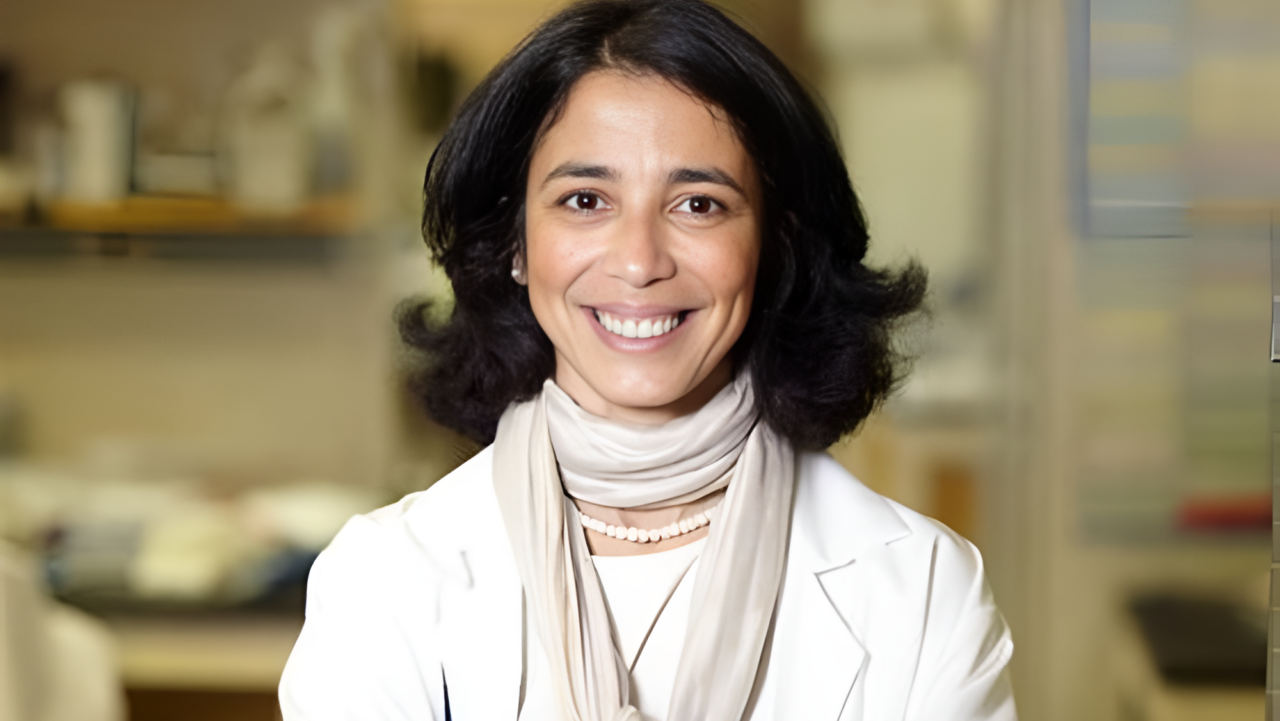Matthew D. Park posted on X about recent paper by him as first author titled “Hematopoietic aging promotes cancer by fueling IL-1⍺–driven emergency myelopoiesis” published on Science.
Authors: Matthew D. Park, Jessica Le Berichel, Pauline Hamon, C. Matthias Wilk, Meriem Belabed, Nader Yatim, Alexis Saffon, Jesse Boumelha, Chiara Falcomatà, Alexander Tepper, Samarth Hegde, Raphaël Mattiuz, Brian Y. Soong, Nelson M. LaMarche, Frederika Rentzeperis, Leanna Troncoso, Laszlo Halasz, Clotilde Hennequin, Theodore Chin, Earnest P. Chen, Amanda M. Reid, Matthew Su, Ashley Reid Cahn, Laura L. Koekkoek, Nicholas Venturini, Shira Wood-Isenberg.

“Thrilled to share our first study on aging from Miriam Merad lab in which we demonstrate how aging promotes cancer. We show that:
Hematopoietic aging, independent of stromal or tumor aging, is responsible for the pro-tumorigenic effect of aging. It exacerbates emergency myelopoiesis, resulting in a local expansion of myeloid progenitor-like cells in tumors.
These myeloid progenitor-like cells produce IL-1⍺ (in addition to shared production of IL-1β w other tumor-infiltrating myeloid cells) and blocking signaling through IL-1R1 during early tumor progression significantly slows growth in old mice.
We further identify an age-related decline in DNMT3A (a mutation in which is a common driver of clonal hematopoiesis) intrinsically promotes IL-1⍺production. We show that this phenotype is shared by murine and human myeloid cells.
In fact, in human tumors, the IL-1⍺ mRNA program defines mo-macs that stratify patients by age, survival, and recurrence.
Further discussion on the implications and extensions of our findings – related to cancer prevention, ongoing trials, future studies – can be found in our paper, so please be sure to check it all out!
This body of work would not have been possible without the inspiring mentorship and support of Miriam Merad and her lab. There is no better coach, and as with any great coach, there’s her team. This includes support from Tom Marron and labs of Nicolas Vabret and Brian Brown.”
Source: Matthew D. Park/X
Matthew D. Park is an MD/PhD candidate at the Icahn School of Medicine at Mount Sinai, where he works in the Merad Laboratory within the Precision Immunology Institute and the Tisch Cancer Institute. In the Department of Oncological Sciences, he focuses on studying cellular senescence in myeloid cells, particularly in the contexts of aging and tumorigenesis.


